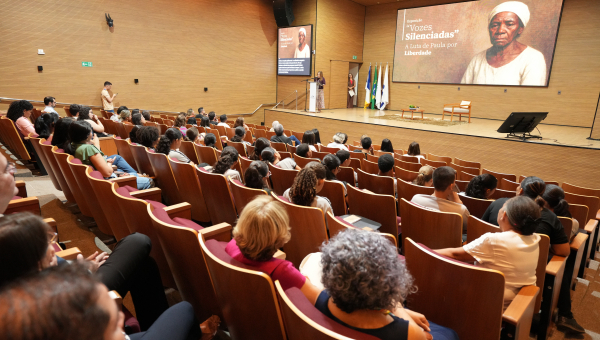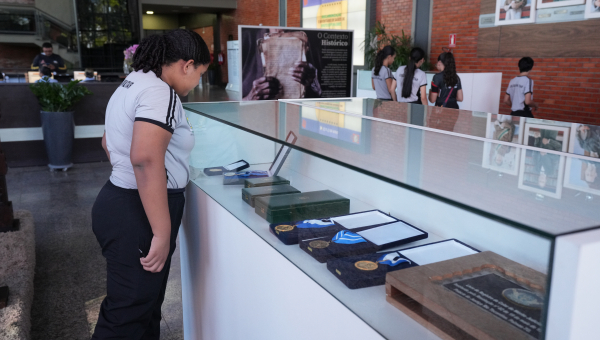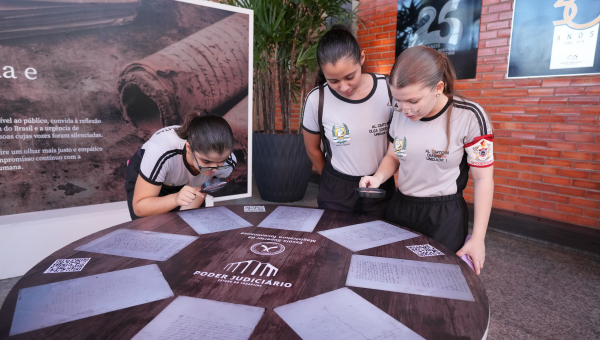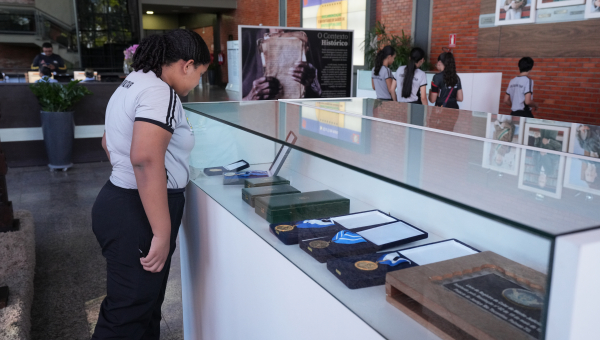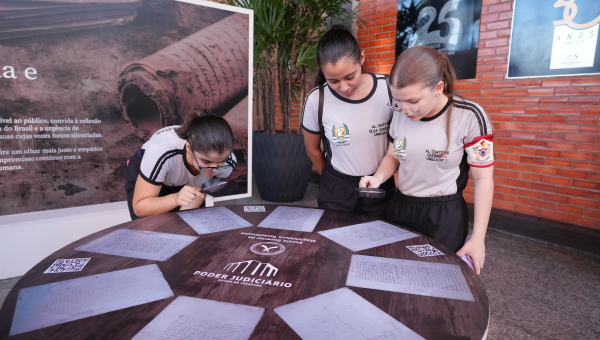
The Court of Justice of the State of Tocantins (TJTO), through the Commissions on Memory and Document Management, in partnership with the Superior School of the Judges of the State of Tocantins (Esmat), inaugurated the exhibition on “Silenced Voices: struggle of Paula for freedom” on Monday (May 13th). The exhibition is part of the celebrations for the Memory of the Judiciary Day and it also commemorates the signing of the Golden Law, marking an important institutional step in the preservation and dissemination of the history of the Judiciary in the State.
During the ceremony, Justice Ângela Prudente, president of the Commission for the Memory Management, highlighted the duty of memory in preserving the history of the people who lived in the state of Tocantins in past centuries.

“The story of Paula reminds us that the Judiciary has a duty to be an instrument of justice and social transformation. By reliving the story of this woman who was enslaved, we reaffirm our commitment to historical memory and to the promotion of a more inclusive justice system that is sensitive to the inequalities that still persist in our society. May no silenced voice remain forgotten; may no story of struggle be lost in the silence of time,” she said.
The exhibition recalls the story of Paula, a black enslaved woman who, in 1858, in the territory that today belongs to the state of Tocantins, fought for and legally won her freedom. By giving visibility to this achievement, the Judiciary of the state of Tocantins reaffirms its commitment to social justice and the preservation of historical memory.
“This exhibition is not just a display of documents, it is a symbolic gesture, deeply committed to the essence of Justice, which is to preserve memory as the foundation of identity, legality and citizenship,” said Justice Maysa Vendramini Rosal, president of the TJTO.
About the exhibition
Open to the public until June 30th in the hall of the TJTO in the city of Palmas, the exhibition also marks the launch of the Memory Portal of the Judiciary of the state of Tocantins. The initiative is in line with the guidelines of the National Council of Justice (CNJ) and the National Program for Document Management and Memory of the Judiciary (Proname), promoting a critical re-reading of the past and encouraging recognition of the struggles for freedom, dignity and inclusion. The exhibition is an invitation to reflect on the historical wounds left by slavery and the importance of preserving and valuing collective memory as an instrument of transformation.
